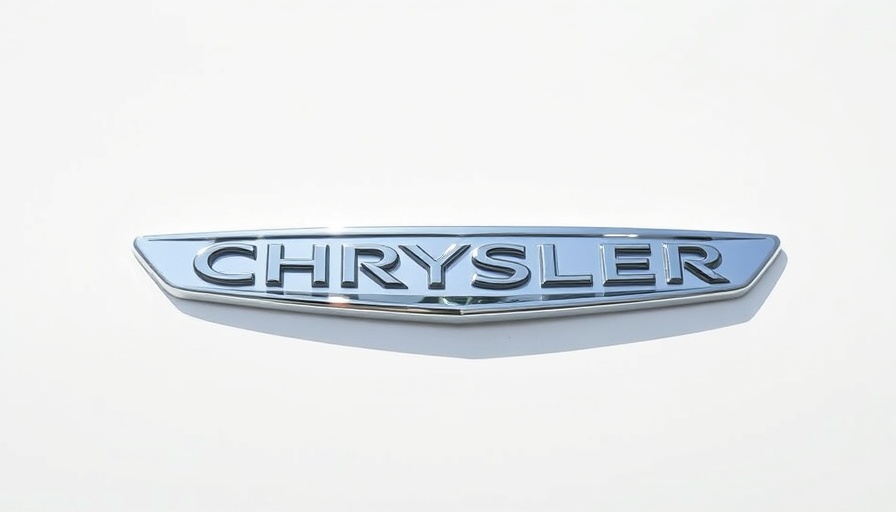
Chrysler Issues Major Recall: What It Means for Owners
Chrysler is making headlines once again, this time with a significant voluntary recall affecting more than 250,000 of its Voyager and Pacifica vehicles. Scheduled for the 2022 to 2025 model years, this action is primarily due to potential shortcomings in the side curtain airbags, which may not deploy with adequate pressure during crashes. This recall aligns with the ongoing discussions about automotive safety and highlights the responsibilities of manufacturers to ensure their vehicles meet safety standards.
Understanding the Recall: Key Details
The National Highway Traffic Safety Administration (NHTSA) revealed that the affected vehicles—totalling 250,651—might have improperly sealed seams in their side curtain airbags. This defect could significantly increase the risk of injury during collisions, particularly in side-impact accidents. Chrysler assures customers that dealers will inspect and, if necessary, replace the faulty airbags at no cost. Although the company claims there are no reported injuries related to this issue, proactive communication is essential in maintaining customer trust.
A History of Recalls: Learning from the Past
Chrysler’s latest recall is not a standalone event; in 2024 alone, Stellantis, Chrysler's parent company, recalled over 211,000 vehicles due to a software flaw affecting electronic stability control systems. Furthermore, there were previous recalls for Dodge Charger and Chrysler 300 models involving serious airbag malfunction risks. These incidents underscore a broader context of automotive recalls that have been increasingly prevalent, highlighting an ongoing conversation around vehicle safety and manufacturer accountability.
Why Vehicle Repairs Matter: A Consumer Perspective
For consumers, understanding the implications of vehicle recalls is crucial. The process of bringing vehicles in for repairs, particularly for safety-related issues like airbags, can be daunting. Yet, engaging with the recall process can be life-saving. The potential risks associated with delayed repairs also extend beyond personal safety, impacting resale value and insurance premiums. Consequently, consumers should regularly maintain awareness of recall notifications and promptly address them, ensuring peace of mind when on the road.
Cultural Reflections: What This Tells Us About Automotive Trust
The rise in recalls raises questions about consumer trust and the expectations placed upon manufacturers. In an era where consumers demand transparency and accountability, how companies respond to recalls shapes their reputations. Chrysler's prompt notification of potential issues demonstrates a commitment to safety, yet it also serves as a reminder for all manufacturers to uphold rigorous quality standards. For buyers, associating with brands that prioritize safety can guide future vehicle purchasing decisions.
The Future of Automotive Safety: Innovations and Trends
As automotive technology evolves, so do the complexities of ensuring safety. The increasing integration of advanced technologies in vehicles means that both manufacturers and consumers must adapt. Enhanced safety features, such as automatic crash alerts and real-time diagnostics, present opportunities for reducing recalls. Looking ahead, investment in research and development could help prevent future safety issues, ideally leading to fewer recalls and greater consumer confidence.
In conclusion, while Chrysler’s recall highlights significant safety concerns, it also serves as an important reminder for consumers to stay informed and vigilant regarding their vehicles. By taking recall notifications seriously, vehicle owners can protect themselves and their loved ones better. If you own a 2022-2025 Chrysler Voyager or Pacifica, be proactive: check your vehicle status today, follow the guidance in recall notices, and get any necessary repairs done promptly.
 Add Element
Add Element  Add Row
Add Row 



Write A Comment